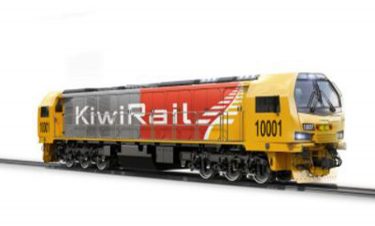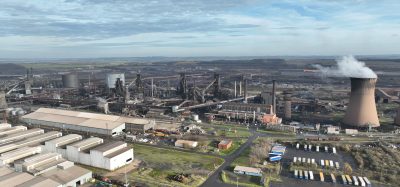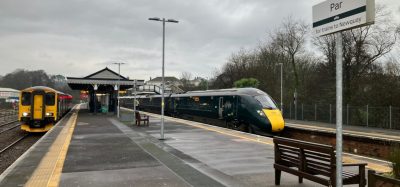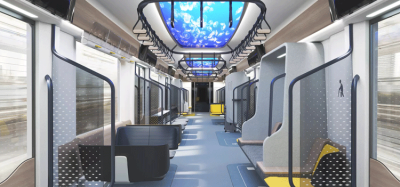KiwiRail orders 57 low emission diesel locomotives
Posted: 15 October 2021 | Global Railway Review | No comments yet
Stadler has secured its first contract in New Zealand to supply 57 diesel locomotives for KiwiRail, which will help the operator on its journey to be emission neutral by 2050.
KiwiRail is a New Zealand government state-owned enterprise, which is responsible for New Zealand’s national rail network, and operates New Zealand rail freight and between-island ferry services. For more than 150 years, New Zealand rail has connected communities, delivered goods and people around the country.
Stadler and KiwiRail have signed a long-term framework agreement with a first call off for the supply of 57 diesel mainline locomotives. The order value of the call off amounts to approximately €228 million


Credit: Stadler
Under this contract, Stadler will supply a latest state of the art Co-Co monocoque locomotive, narrow gauge, customised to KiwiRail requirements and specific operational schemes, incorporating well service proven components and systems.
The new locomotives will be used for freight and passenger rail operation predominately on the South Island, with its challenging track topography.
Following Stadler’s focus on providing sustainable solutions for railway transportation, the locomotives will be compliant with the latest European emission standard (Stage V). This results not only in a substantial reduction of nitrogen oxides and particulate emission and in the consequential cost to environment and public health, but also in optimised combustion, lowering fuel consumption and CO2 emissions.
With its decision for Stadler Stage V locomotives, KiwiRail underlines its clear commitment to provide a highly energy efficient and low emissions mode of transport to New Zealand The two-cab, narrow body locomotives will be equipped with a diesel engine providing an installed diesel power of 3000 kW, that will – in many cases – allow KiwiRail to operate its trains with less locomotives than in the current services.
The low emission locomotives are also an important step in KiwiRail’s plan to be emission neutral by 2050.
Each of the two cabs will be designed in close cooperation with KiwiRail and according to the latest European standards aiming to achieve an ergonomic, comfortable and safe working environment for KiwiRail’s engineers.
Greg Miller, KiwiRail Group Chief Executive said the locomotives represented a new era for rail in New Zealand: “The 57 locomotives will replace our South Island fleet, which has an average age of 47 years. Stadler’s high quality, fuel efficient, more powerful locomotives will allow us to improve service reliability to get more South Island freight off New Zealand’s roads and onto rail. The low emission locomotives are also an important step in KiwiRail’s plan to be emission neutral by 2050.”
Furthermore, Greg added: “It’s a pleasure to work with Stadler. Their professional interactions, quality of engagement and state-of-the-art designs ensure we are partnering with a company that will deliver an outstanding outcome for KiwiRail and New Zealand, and enable our South Island fleet to take advantage of technology advancements well into the future . I’m already looking forward to seeing the first new locomotives heading down our Kaikoura coast in 2024.”
Peter Spuhler, Executive Chairman of the Board and Chief Executive Officer and interim of Stadler, commented: “It is a great honour for Stadler to be able deliver our modern and innovative locomotives to New Zealand for the first time. We thank KiwiRail for this contract and look forward to a successful partnership.”
Dr Ansgar Brockmeyer, Executive Vice President Marketing & Sales and Deputy Chief Executive Officer of Stadler, added: “We are very proud to have signed our first contract for New Zealand and are fully committed to a long-term partnership with KiwiRail. With our wide portfolio of modular and customised vehicle solutions, green traction concepts, digital solutions and tailored expert support services, we indeed see the opportunity to provide further value to KiwiRail and New Zealand mobility beyond the delivery of the first project.”
Related topics
Cargo, Freight & Heavy-Haul, Diesel Locomotives, Rolling Stock Orders/Developments, Sustainability/Decarbonisation







